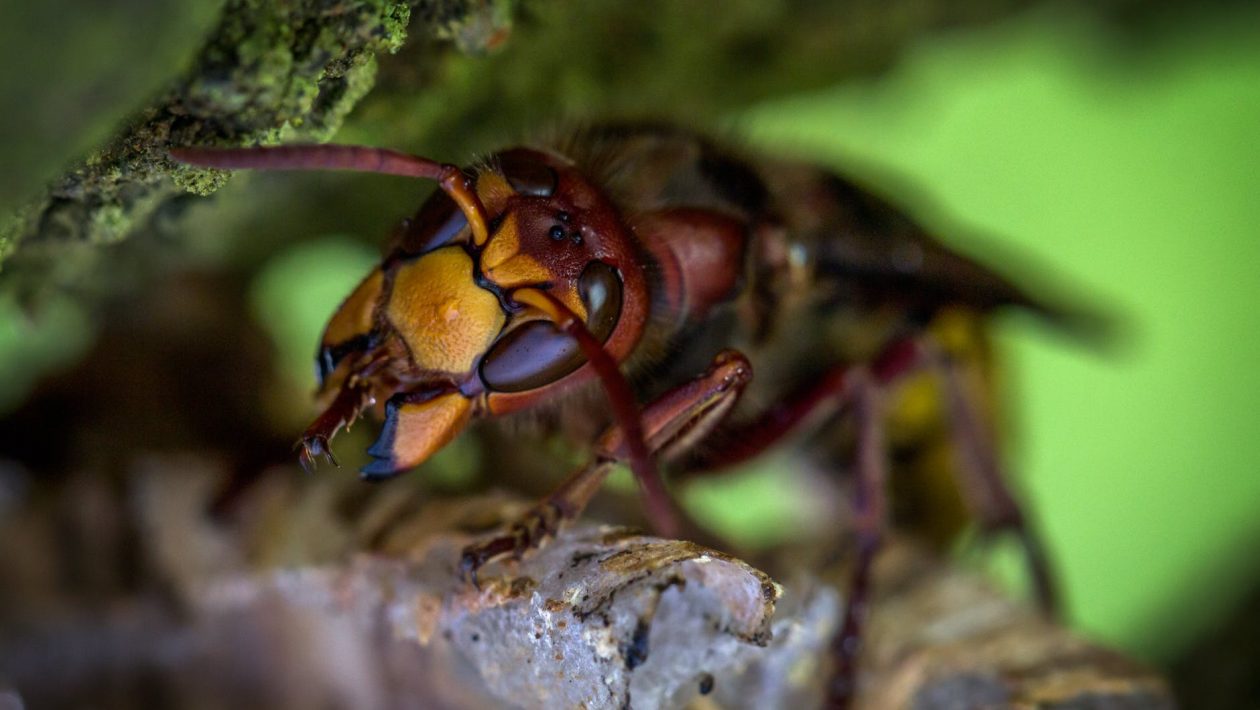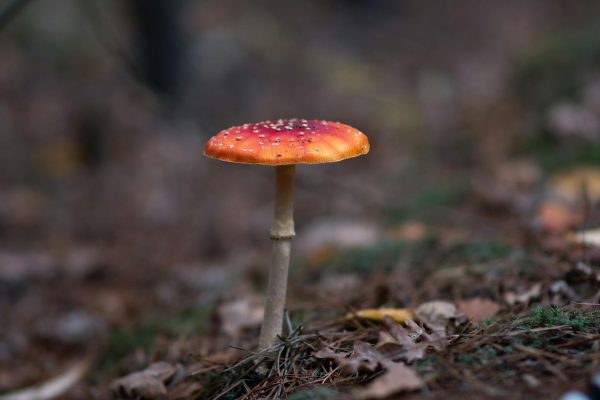Did a hornet ever attack you? Are bees and hornets the same? How are the remedial measures in the case of wasps and bees? Do you need medical attention for a hornet sting?
Various queries pop in your head when something unknown bites or stings you. You become confused and terrified at the very thought of resolving your body’s reactions to insect bites. Have you ever come across a hornet sting? Is it similar to the painful bites of other bees and wasps?
The species of hornets belong to the kingdom of Animalia, further classified into phylum Arthropoda and class Insecta. Hornets belong to the order of Hymenoptera, within a family of Vespidae. The genus name for hornets is Vespa.
What are hornets
Hornets belong to the biggest community of eusocial wasps, appearing quite akin to its close members of yellow jackets. You will mostly find European hornets in the northern part of equator, encompassing regions of European Russia, Ukraine, and Europe. The scientific name for European hornet is Vespa crabro.
In the eastern parts of the world, you find European hornets in the western region of Siberia and Ural mountains. The prevalence of European hornets is also noticeable in the Asiatic belt of eastern China and southern Siberia.
Distribution of Asian giant hornet involves China, Laos, Russia, Korea, Cambodia, India, Taiwan, Thailand, Sri Lanka, Vietnam, Nepal, and Indochina. The scientific term for Asian giant hornet is Vespa mandarinia.
Asian giant hornet is a different species than Asian hornet or Vespa velutina. You see the distribution of Asian hornets in regions of Portugal, Spain, Italy, and France.
You will notice the prevalence of Oriental hornet in sub-tropical regions of Central Asia, North Africa, southern Europe, and the Middle East. Vespa orientalis or Oriental hornet is even present in some parts of the Gulf of Aden.
What happens when any of the species of hornet stings you? Can the sting land you up in serious health complications? When should you visit a doctor in case of a sting?
Get to know everything about hornet sting in this article and keep yourself prepared for any unprecedented emergency.
Scientific information about hornet sting
What all should you know about hornet sting? To understand the reasons behind various remedies to a hornet sting, you need to learn about the sting first. Without knowing the chemical nature of a sting, you will not be able to plan your treatment methods.
Hornet sting helps in defending the nest of the species from possible threats and killing prey. The pain that you feel from a normal bee sting is very different from that of a sting.
Hornet sting can be extremely painful, as its venom contain a higher amount of acetylcholine (as high as 5 percent). A single hornet can sting you multiple times, which is quite unlikely of the stinging nature of honeybees. One mindboggling fact about hornets is that they do not die right after stinging you like other bees.
If you scrutinize a hornet under a microscope with high magnification, you can how well they are barbed. The stingers do not easily fall off and kill the hornet on disengaging from the host body after stinging.
How dangerous is a hornet sting?
The exact species of hornet has a lot to say about the toxicity of the sting. Not all hornets have the same intensity of poison toxicity. Sometimes the string can be as simple as a typical honeybee or wasp. Depending on the species, other hornet stings can be as poisonous as that of supremely venomous insects.
The most poisonous species of hornets of all is the Asian giant hornet. As per records, Vespa mandarinia has a sting capacity to kill more than 30 people in Japan every year.
Single hornet sting does not usually pull off a fatal response, except for individuals with higher allergic responses. If your hypersensitivity level is very high, the results of a hornet sting can prove to be detrimental. In such a case, you need to seek the help of a medical expert immediately.
Non-European hornets are mostly common for inflicting multiple stings that are extremely dangerous and can be fatal. You may suffer from serious conditions like multi-organ failure and severe allergic reactions from non-European hornet sting. There are some definite chemical compounds present in non-European hornets, making the venom extremely poisonous.
How dangerous are they to you?
Are you allergic to the sting of a bee or wasp? If so, then you are most likely to be allergic to hornet sting as well. You can treat allergic responses with hormonal injections like adrenaline (epinephrine) with a medical device like an epinephrine auto-injector. Remember to have a proper follow-up session in a hospital to ensure a complete recovery from the allergies.
In serious cases, you may land up in an anaphylactic shock that can lead to death if not treated immediately. Hornets even release something called an ‘attack pheromone’ in case they feel any threat to their nests. The attack pheromone has a chemical composition of two extremely aggressive biologically potent compounds- 1-methyl butyl 3-methyl butanoate and 2-pentanol, 3-methyl-1-butanol.
What are the possible hornet sting symptoms?
Mostly you will be experiencing minor forms of allergies, within a local region pre and post a hornet sting. Initially, you will feel an intense burning and pain around the sting area. Moderate allergic reactions to hornet sting are usually site oriented, which the reaction intensity is restricted within the sting area. Some of the common signs of a less severe hornet sting reaction include-
- Pain and redness
- Inflammation at the site of sting only
- Spots resembling acne or pimples
- Constant itchiness
- Generation of mild heat at the injury spot
You can broadly classify reactions to a hornet sting in three categories:
Small local reactions
Surrounding the area of hornet sting, you will notice the development of a raised weal. You will notice the appearance of a little white spot in the center of the weal. It is the mark of puncture of the hornet sting piercing right into your skin. Usually, the soreness and swelling will lessen with the passage of time (expected within a few hours) post the hornet sting.
Larger local reactions
It signifies more distinct allergic reactions related to a hornet sting. You will be prone to showing larger local reactions, if you are already allergic to bee or wasp stings. However, you will not enter into an anaphylactic stage for experiencing larger local allergic responses.
Some of the prominent signs of larger local reactions can be severe redness and inflammation. Symptoms usually enhance within 2-3 days post a hornet sting, but subsides with given time (approximately a week or two). Other common signs are vomiting and nausea.
Doctors generally prescribe OTC (over-the-counter) antihistamine medications like Benadryl for easing your pain and other symptoms. Reacting to a hornet sting once does not imply that you will have the same response during a future sting. Your immunity can build up in a better way to combat hornet sting in the future. The symptoms may be feeble, or you may not even develop any allergies to the next sting.
Anaphylaxis
An extremely potent fatal kind of an allergic reaction that can make your body dwell in shock for several minutes. If you have a tendency towards an anaphylactic shock, you can easily experience anaphylaxis post an allergen exposure. An allergen can be as simple as a peanut to a bee or hornet sting.
Anaphylactic shock post hornet sting
What exactly do you exactly experience when your body goes into an anaphylactic shock after a wasp or hornet sting? You undergo serious allergic reactions in an anaphylactic state, the symptoms being-
- Awful inflammation of your face, majorly targeting your throat and lips
- Feeling of dizziness, puking and nausea
- Experiencing itchiness or urticaria (hives) in regions of your body outside the sting area
- Sudden decline in your blood pressure level
- Difficulty in breathing properly, resulting in severe gasping and wheezing
- Abnormal increase or decrease in your pulse rate, suggesting irregular heartbeat
- Lightheadedness with a sense of blurry vision
- Stomach issues like abdominal cramps and diarrhea
It is not necessary to experience all the symptoms at once after a hornet sting. However, you will come across at least a few of the potent symptoms of anaphylaxis post a sting. When a doctor treats an anaphylactic shock, he or she will ask you for a medical history. If you have come across anaphylaxis before, you need to have a kit in case of a hornet sting.
What does an anaphylactic kit contain? Bee or hornet sting kits have hormonal injections such as epinephrine (EpiPen), which you need to inject instantly after the sting.
Epinephrine or adrenaline is an emergency hormone that can help in stabilizing your fluctuating blood pressure and improve cardiovascular functioning. When heart strength increases, it will eventually improve your respiratory system to help you breathe normally during an anaphylactic shock.
Can you prevent allergy shocks?
Yes absolutely, you can prevent the onset of anaphylactic or other allergy shocks. Getting allergic shots at the right age can help you avoid severe allergy responses. Almost 97 percent of the allergy shots are effective against hypersensitivity and other stages of allergies.
You need to visit your doctor over a consistent period to get allergy shots at proper intervals. Eventually, with every visit, your doctor will increase the dosage of the venom shot to boost your immune levels. The more powerful your immune system becomes, the more you can fight against allergies following a hornet sting.
How to treat hornet sting?
In case of mild symptoms of a wasp or hornet sting, you can easily go for home remedies for effective recovery.
What measures to take for curing hornet sting symptoms at home? First of all, always wash the area of sting infection with soap and lukewarm water. Your aim should be to get rid of as much poison as possible from your body.
After proper washing, apply an icepack at the infection site to relieve the steeping pain and inflammation. Always try to keep the sting site clean to avoid any further infection. If necessary, cover the area of hornet sting with a sterile Band-Aid to prevent septicity.
Other options include applying calamine lotions and hydrocortisone creams on the wound for relieving excessive itchiness. There are certain items like colloidal oatmeal and baking soda that you can easily find in your kitchen. You can use such items on your skin by mixing them with medicated lotions or creams for experiencing a soothing effect.
Vinegar is one potential home remedy to cure hornet sting. Vinegar is composed of an acidic chemical compound called acetic acid, which can efficiently neutralize the alkaline hornet poison.
How should you use vinegar for treating hornet stings?
Take a clean cotton ball and dip it in white vinegar. Now use the cotton ball on the infected site, both in and around the area. You can put a little pressure on the sting area while applying vinegar-soaked cotton ball, to reduce swelling and soreness. After a soft massage over the wound, let the cotton ball rest on it for a few minutes for effective relief.
What not to do while treating a hornet sting?
Do not use any tweezers to remove the sting mark, or squeeze the infected area too hard. Avoid scratching the area, although it may itch quite unbearably. Scratching can lead to further sepsis or infections. Sometimes you may feel like bursting the blisters if you have a tendency of popping pimples. Do not pop any welts.
Which medicines can cure hornet sting?
To get relief from continuous itching and pain, doctors will mostly prescribe you antihistamines like chlorpheniramine and diphenhydramine. Always take the medications according to the doctor’s instructions to prevent unwanted side effects. Some of the negative impacts of having antihistamine medicines can be drowsiness and stomach upset.
There are OTC pain relievers like ibuprofen (Motrin) and acetaminophen (Tylenol) to combat soreness in the case of hornet sting. Non-sedating medicine options include Claritin (loratadine) to soothe swelling and itchiness.





